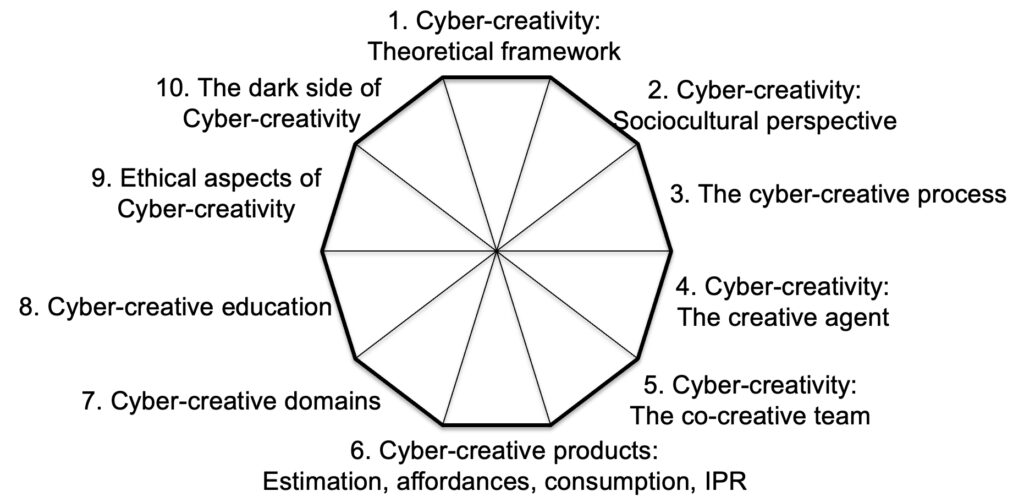AI Task Force
The ISSCI AI Task Force is dedicated to exploring the role of artificial intelligence in the creative process, or cyber-creativity.
About the Task Force
The AI Task Force is a special interest group within ISSCI, led by Prof. Giovanni Emanuele Corazza, dedicated to the study of interactions between humans and artificial intelligence in the creative process, indicated as cyber-creativity in short. The group has worked together to identify a Decalogue of Research Challenges in Cyber-Creativity, considering the following ten dimensions: 1) the theoretical framework for cyber-creativity; 2) sociocultural perspectives; 3) the cyber-creative process; 4) the creative agent; 5) the co-creative team; 6) cyber-creative products; 7) cyber-creative domains; 8) cyber-creative education; 9) ethical aspects; and 10) the dark side of cyber-creativity.
Members who are interested in joining the AI Task Force should get in contact with Prof. Corazza at giovanni.corazza@unibo.it

Creativity is the primary driver of our cultural evolution. The astonishing potential of artificial intelligence (AI) and its possible application in the creative process poses an urgent and dramatic challenge for humanity; how can we maximize the benefits of AI while minimizing the associated risks? In this article, we identify all forms of human–AI collaboration in this realm as cyber-creativity. We introduce the following two forward-looking scenarios: a utopian vision for cyber-creativity, in which AI serves to enhance and not replace human creativity, and a dystopian view associated with the pre-emption of all human creative agency caused by the rise of AI. In our view, the scientific community is called to bring its contribution, however small, to help humanity make steps towards the utopian scenario, while avoiding the dystopian one. Here, we present a decalogue of research challenges identified for this purpose, touching upon the following dimensions: (1) the theoretical framework for cyber-creativity; (2) sociocultural perspectives; (3) the cyber-creative process; (4) the creative agent; (5) the co-creative team; (6) cyber-creative products; (7) cyber-creative domains; (8) cyber-creative education; (9) ethical aspects; and (10) the dark side of cyber-creativity. For each dimension, a brief review of the state-of-the-art is provided, followed by the identification of a main research challenge, then specified into a list of research questions. Whereas there is no claim that this decalogue of research challenges represents an exhaustive classification, which would be an impossible objective, it still should serve as a valid starting point for future (but urgent) research endeavors, with the ambition to provide a significant contribution to the understanding, development, and alignment of AI to human values the realm of creativity.
